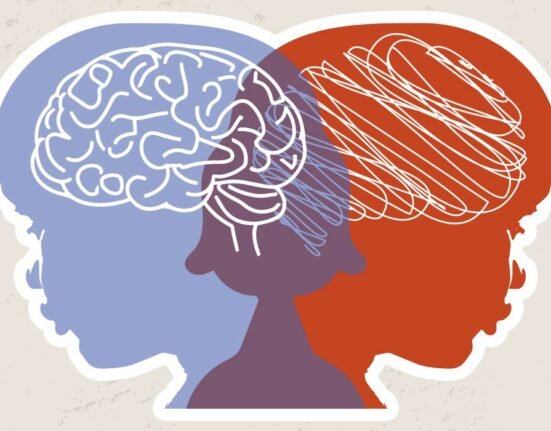PANDAS (Pediatric Autoimmune Neuropsychiatric Disorder Associated with Streptococcal infections) affects children with scarlet fever or strep throat and tends to develop the symptoms of this disorder. Furthermore, genetic predisposition or recurrent infections might contribute to its pathology. Studies have displayed that OCD (Obsessive-Compulsive Disorder), tics and many other neuropsychological symptoms have been linked to PANDAS syndrome. It primarily affects children assigned male at birth, with the condition most commonly observed in those aged 3 to 12 years.
Children affected by Streptococcus pyogenes are reported to develop disruptions in their personality, behavior and movement. Strep infections can range from mild skin infections or sore throats to severe scarlet fever or strep throat. Streptococcus bacteria can be found on the skin’s surface as tell as in the throat. It is not an air-borne infection, where one contracts it by inhaling or being in vicinity of an affected individual as a transmissible infection. Instead, it depends upon the immune response of an individual to the streptococcus bacteria. PANDAS is a rare condition, and most individuals affected by it experience full recovery.
Symptoms of PANDAS Syndrome:
- Hyperactivity or inattention – ADHD (attention-deficit hyperactivity disorder)
- Disruptions in motor skills – handwriting
- Joint pains
- Problems in cognitive abilities – attention, learning and memory
- Separation anxiety, panic attacks
- Sleep disturbances
- Bedwetting at night or frequent urination
- Difficulty in regulating emotions – irritability along with incessant screaming, sadness
- Appetite loss
- Sensitive to stimulus – light, sound or touch
- Developmental regression – speech, motor, cognitive or social
The symptoms of PANDAS appear suddenly and are often quite severe. The strep bacteria disguise itself within the human body by forming a cell wall that mimics human cells. Thus, detection of the same becomes difficult as they exhibit molecular mimicry. The body eventually discovers these bacterial cells as foreign bodies and our immune system produces a response against it in order to eradicate from the host organism. Due to the molecular mimicry, the antibodies of our immune system attack the host cells of an individual as well as they fail to identify it as their own. When the immune system attacks the brain tissues it predisposes an individual to contract OCD (Obsessive-Compulsive Disorder), motor or vocal tics.
Is PANDAS prevalent in adults?
While adults may contract PANDAS, research suggests that symptoms of the syndrome typically develop in early or late childhood. It is highly unlikely for the onset of neuropsychiatric symptoms associated with PANDAS in adults. However, adolescents may develop immune-mediated OCD, though this remains less well understood.
How is PANDAS diagnosed?
PANDAS is diagnosed by a clinician according to certain criteria of their presenting symptoms of illness along with the individual’s medical case history. Moreover, if the child is diagnosed with OCD (Obsessive-Compulsive Disorder) or tics they are more likely to be prone or having contracted this disorder. It is associated with neuropsychological pathology like fidgeting, hyperactivity or uncontrollable jerky movements, lacking coordination. Children affected with strep-A infection are prone to developing PANDAS if full recovery is not attained and is confirmed by a throat culture or blood
test. Moreover, the onset of the syndrome is sudden and the symptoms worsens abruptly, overnight followed by a gradual improvement.
Difference between PANS and PANDAS:
The string of conditions that affects the individual is similar in both the cases although PANS (Pediatric Acute-onset Neuropsychiatric Syndrome) is not contracted due to strep infection rather is reported to be caused by influenza or Lyme disease. Though, PANDAS (Pediatric Autoimmune neuropsychiatric Disorders Associated with Streptococcal infections) was medically recognized decades earlier but is considered a subset of PANS. Common symptoms include irritability, anxiety, disruptions in motor skills, loss of appetite and sleep disturbances.
Treatment of PANDAS:
The treatment plan includes addressing the psychiatric symptoms and physical ailments. In order to recover from the strep-A infection doctors administer antibiotics like amoxicillin, azithromycin, cephalosporin and penicillin. Strep-A bacteria can be challenging to eliminate from the sinuses or other areas outside the throat, so individuals often require a longer course of antibiotics. Additionally, to combat the neuropsychiatric symptoms, antidepressants like SSRIs (selective serotonin-reuptake inhibitors) – fluoxetine, fluvoxamine, sertraline and paroxetine are prescribed.
Moreover, CBT (Cognitive Behavioral Therapy) is enforced to improve OCD (Obsessive-Compulsive Disorder) symptoms. Children may be sensitive to medications, particularly SSRIs, so it is important to start with a low dose and increase slowly. If symptoms worsen, the dosage may need to be reduced, but the medication should not be stopped abruptly as it could disrupt the course of treatment.
Furthermore, caregivers, such as parents, should sterilize their toothbrushes and utensils used for consumption of food, and these items should not be shared with anyone. Moreover, after sneezing or being in vicinity of someone who is ill, they should wear masks, use hand sanitizers, and wash their hands thoroughly. Plasma exchange or IVIG (immunoglobulin) may be considered as part of the treatment plan for individuals severely affected by PANDAS, especially if antibiotics or antidepressants are ineffective for them.
References +
- Pediatric Autoimmune Neuropsychiatric Disorders Associated with Streptococcal Infections (PANDAS) – Epidemiology. (2023, June 20). Epidemiology. https://www.vdh.virginia.gov/epidemiology/epidemiology-fact-sheets/pediatric-autoimmune-neuropsychiatric-disorders-associated-with-streptococcal-infections-pandas/
- Pietrangelo, A. (2019, March 30). PANDAS: a guide for parents. Healthline. https://www.healthline.com/health/pandas-syndrome#outlook
- PANDAS Syndrome. (2024, September 1). Cleveland Clinic. https://my.clevelandclinic.org/health/diseases/23553-pandas-syndrome
- Langmaid, S. (2023, February 21). What is PANDAS Syndrome? WebMD. https://www.webmd.com/children/what-is-pandas-syndrome
- PANDAS—Questions and answers. (n.d.). National Institute of Mental Health (NIMH). https://www.nimh.nih.gov/health/publications/pandas
- PANDAS: Pediatric autoimmune neuropsychiatric disorder associated with group A streptococci – UpToDate. (n.d.). UpToDate. https://www.uptodate.com/contents/pandas-pediatric-autoimmune-neuropsychiatric-disorder-associated-with-group-a-streptococci













Leave feedback about this